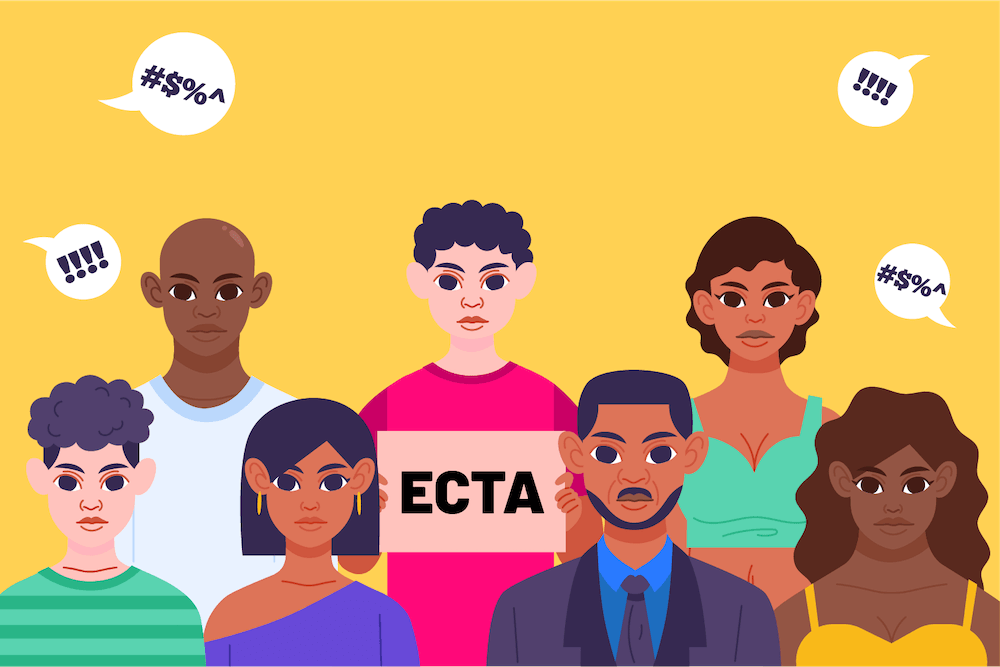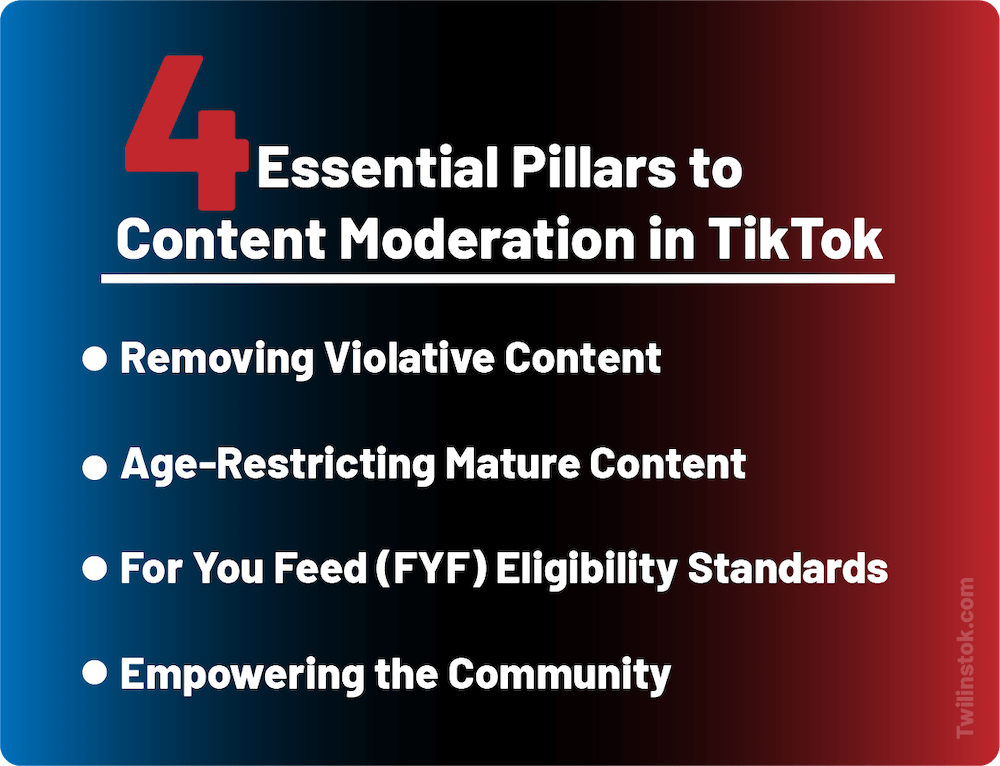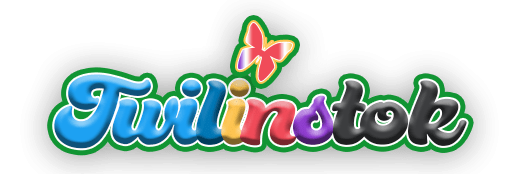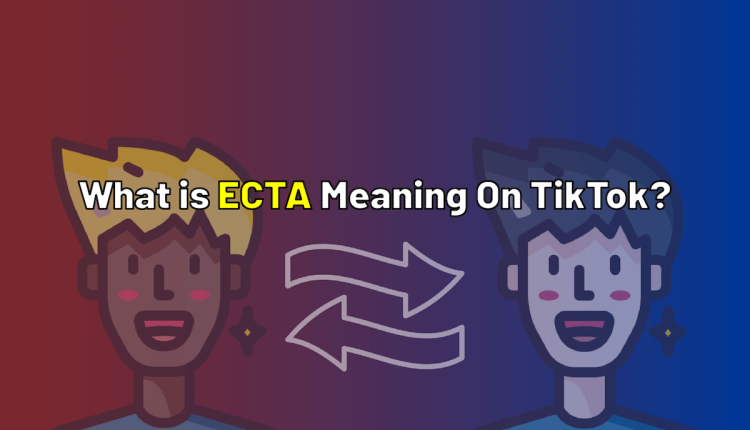Have you ever found yourself scrolling through your TikTok feed, only to stumble upon a bewildering term like ECTA meaning TikTok that leaves you utterly perplexed? Well, you’re not alone in this ever-evolving realm of TikTok lingo! TikTok, the immensely popular social media juggernaut, is not merely a platform for viral dances and lip-sync challenges; it’s also a fertile ground for the birth of new terminology and trends that propagate across the digital landscape at breakneck speed.
One particular term that’s been causing a buzz lately is ‘ECTA,’ not to mention its close companion ‘RCTA.’ These enigmatic terms have piqued the curiosity of countless TikTokers. But what’s the story behind them? Why have they suddenly skyrocketed in popularity? In this article from Twilinstok, we will embark on a journey to uncover the meanings of ‘ECTA’ and ‘RCTA’ within the TikTok universe, shedding light on these emerging expressions and their significance within the vibrant TikTok community. So, fasten your seatbelts as we unravel the mysteries of the ECTA meaning TikTok!
What is ECTA on TikTok?
In the dynamic world of TikTok, language evolves as rapidly as trends come and go. One of the recent terms that’s been circulating on the platform is ‘ECTA,’ an acronym for ‘Ethnicity Change to Another.’ This intriguing expression has found its niche among users who are either in the process of changing their ethnicity or have already undergone this transformation. It’s closely related to the concept of being ‘transracial,’ where an individual identifies with a race different from their biological ancestry.
ECTA meaning TikTok has become a buzzword, with users incorporating it into their videos to openly discuss their personal experiences and journeys related to ethnicity transformation. These videos often delve into the challenges, triumphs, and reflections that come with embracing a different ethnic identity. For example, some TikTokers have shared their heartfelt stories about transitioning from one ethnicity to another and how this transformation has shaped their lives.
But ‘ECTA’ isn’t just a standalone term; it’s intricately woven into the fabric of current TikTok trends. The platform has emerged as a vibrant space for conversations around identity and self-expression. ‘ECTA’ has been embraced by many users as a means to explore their own identities and establish connections with individuals who share similar experiences.
However, it’s important to note that ‘ECTA’ is a concept with layers of complexity and nuance. It’s associated with the sub-keyword “Ethnicity Change to Another,” which refers to the process of transitioning from one ethnicity to another. This transformation can involve changes in appearance, behavior, and cultural practices to align with a different ethnic group. Yet, the notion of changing one’s ethnicity is not without controversy, as it raises profound questions about identity, culture, and the sense of belonging.
In summary, ECTA meaning TikTok represents more than just a trendy term; it’s a window into the evolving discussions surrounding ethnicity, identity, and the diverse narratives that find their voice on this ever-evolving social media platform.

What is RCTA on TikTok?
On TikTok, the term ‘RCTA‘ means ‘Race Change To Another’. It refers to the trend of people attempting to change or transition to a different race from the one they were born. The term is very similar to ‘transracial’, which has gained a lot of attention in the media. The main difference between RCTA and transracial is that those who say they are the former believe they are more educated and have made more of an effort to learn about the race they are attempting to change to.
Being RCTA can be as simple as just saying you are a different race. Sometimes, people go to the extent of having multiple surgeries to look more stereotypically like the race they are changing to. The acronym can also be ECTA, which has a TikTok meaning of ‘Ethnic Change To Another,’ but it means the same thing. On TikTok, the RCTA hashtag has over 65 million views. Most videos are making fun of it, while others are trying to prove how ridiculous and controversial it is. Nevertheless, people still use the hashtag to ‘spread awareness’ and to show off their experience.
TikTok’s Impact on Language and Culture
TikTok has undoubtedly become a major linguistic influence, with new terms and trends emerging on the platform at a breakneck pace. Terms like ‘ECTA’ and ‘RCTA’ are just two examples of how TikTok is shaping the way we communicate and express ourselves.
But TikTok’s impact goes beyond just language. The platform has also become a cultural force, popularizing new concepts and ideas that spread across the globe. With its massive user base and viral nature, TikTok has the power to introduce new terms and trends to millions of people in an instant.
Take ‘ECTA,’ for example. This term, which stands for ‘Ethnicity Change to Another,’ touches on complex issues of identity, culture, and belonging. By popularizing this term, TikTok has brought these issues to the forefront of public discourse, sparking conversations and debates among its users.
In this way, TikTok is not just a social media platform, but a driving force behind the evolution of language and culture in the digital age. As new terms like ‘ECTA’ and ‘RCTA’ continue to emerge, we can expect TikTok to play an increasingly important role in shaping the way we communicate and understand the world around us.
TikTok Rules Regarding ECTA and RCTA
TikTok upholds its Community Guidelines, which serve as the cornerstone for maintaining a safe and enjoyable experience for all users. These guidelines encompass a wide range of topics and standards that apply universally on the platform. They are meticulously crafted with insights from international legal frameworks, industry best practices, input from the TikTok community, and guidance from safety, and public health experts, and regional Advisory Councils.
The Community Guidelines are thoughtfully categorized by topic area, with each rule boldly outlined for clarity. Within each section, users can delve deeper into the specifics by clicking for more information. Here, they can find definitions, concrete examples, and clarifications to common questions, providing a comprehensive understanding of what is permissible on the platform.
TikTok’s approach to content moderation revolves around four essential pillars:
- Removing violative content
- Age-restricting mature content
- For you feed (FYF) eligibility standards
- Empowering the community
Now let’s check these 4 Essential Pillars to Content Moderation in TikTok

1. Removing Violative Content
TikTok actively removes any content that violates its established rules and standards.
2. Age-Restricting Mature Content
Content that is deemed mature is age-restricted, ensuring it can only be viewed by adults aged 18 and older.
3. For You Feed (FYF) Eligibility Standards
TikTok maintains rigorous standards to determine content eligibility for promotion through its recommendation system, ensuring it aligns with suitability for a broad audience.
4. Empowering the Community
TikTok empowers its user community with valuable information, tools, and resources to enhance safety and understanding.
Moreover, TikTok places a strong emphasis on eight guiding community principles, which exemplify their commitment to human rights. These principles revolve around the delicate balance between free expression and harm prevention, the embrace of human dignity, and the commitment to fair and equitable actions. They underscore TikTok’s dedication to fostering a welcoming and respectful environment for all users.
The Bottom Line
As we’ve seen, ‘ECTA’ and ‘RCTA’ are just two examples of the many new terms and trends that emerge on TikTok. With its dynamic nature and massive user base, TikTok is constantly introducing new concepts and ideas that spread like wildfire across the internet.
So, what can we expect from TikTok in the future? It’s hard to say for certain, but one thing is for sure: TikTok will continue to be a major force in shaping language and culture in the digital age. As new terms and trends emerge, we can look forward to engaging with a vibrant and diverse community of TikTokers who are always pushing the boundaries of creativity and self-expression.
In conclusion, ‘ECTA’ and ‘RCTA’ are just the tip of the iceberg when it comes to TikTok’s impact on language and culture. As we continue to explore this dynamic platform, we can expect to discover many more exciting trends and concepts that will enrich our understanding of the world around us.
For more information about TikTok and the features of this social network, we suggest that you click on Free TikTok Tutorial [+]. Also, if you have any questions about TikTok, you can ask them in our TikTok support forum [+] in the form of a topic and wait for the answer from our experts.
FAQs
What is ECTA on TikTok?
ECTA stands for Ethnicity Change to Another, which is a trend where some TikTok users claim to have changed their ethnicity or culture through surgery, makeup, or other means.
Who started the ECTA trend on TikTok?
The ECTA trend on TikTok was allegedly started by a British influencer who underwent multiple surgeries to look like Jimin from the K-pop group BTS.
Why is ECTA considered offensive and disrespectful?
ECTA is considered offensive and disrespectful because it’s offensive towards cultures and identities of people of color.
How are TikTok users reacting to the ECTA trend?
TikTok users are reacting to the ECTA trend in different ways, such as mocking or exposing the ECTA users by making parody videos or sharing their own stories of racism and discrimination.
What is TikTok’s policy on ECTA content?
TikTok’s policy on ECTA content is not clear, so it depends on the content itself.

